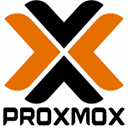OpenStack Alternatives: Top Cloud Platforms & Virtualization Solutions
OpenStack is a global collaboration of developers and cloud computing technologists producing the ubiquitous open source cloud computing platform for public and private clouds. It aims to deliver solutions for all types of clouds by being simple to implement, massively scalable, and feature-rich. However, for various reasons, including complexity, specific feature needs, or existing infrastructure, many users seek viable OpenStack alternative solutions. This article explores some of the best alternatives available for those looking for different cloud computing and virtualization platforms.
Top OpenStack Alternatives
When considering an OpenStack alternative, factors like ease of use, cost, specific features (such as containerization or high availability), and platform compatibility become crucial. Here are some of the leading contenders that offer robust cloud infrastructure and virtualization capabilities.

QEMU
QEMU (short for "Quick EMUlator") is a free and open-source hosted hypervisor that performs hardware virtualization. It's an excellent OpenStack alternative for those prioritizing deep control over virtualization at the bare-metal level. QEMU is highly portable and scriptable, supporting various platforms including Mac, Windows, Linux, and BSD, offering features like user mode emulation and general virtualization.

Proxmox Virtual Environment
Proxmox Virtual Environment is an enterprise-class, open-source virtualization platform that makes an excellent OpenStack alternative for managing both container-based and full virtualization. Available on Windows and Linux, it's a freemium offering with robust features like live migration, clustering, high availability, and a user-friendly WebUI for management, providing a comprehensive virtualization solution.

Linode
Linode offers commercial cloud infrastructure for developing, deploying, and scaling applications at a competitive price-to-performance ratio. As a web-based and Linux-centric OpenStack alternative, it provides features like object storage, block storage, automatic backups, custom DNS, support for IPv6, Kubernetes integration, load balancing, a REST API, SSD Storage, and VPS hosting, making it a strong choice for diverse cloud needs.

Google App Engine
Google App Engine is a freemium web platform for developing and hosting web applications within Google-managed data centers. It's a powerful OpenStack alternative for developers seeking fast deployment and scalability without managing underlying infrastructure. Key features include API support, import from MySQL, PHP IDE, and Node.js support.

Microsoft Azure
Microsoft Azure is a comprehensive commercial cloud computing service that enables users to build, host, and scale applications in Microsoft datacenters. It's a robust OpenStack alternative, offering a wide array of services including auto virtual hosts, cloud storage, CDN, virtual machines, and web hosting across web, Android, and Android Tablet platforms.

Xen
Xen.org, home of the Xen hypervisor, is a powerful open-source industry standard for virtualization. As a bare-metal hypervisor, it provides services allowing multiple computer operating systems to execute on the same computer hardware concurrently. This free, Linux-based hypervisor is a strong OpenStack alternative for those needing deep, low-level virtualization capabilities.

Amazon Elastic Compute Cloud
Amazon Elastic Compute Cloud (Amazon EC2) is a web service that provides resizable compute capacity in the cloud. Designed to make web-scale computing easier, this commercial platform (available on Windows, Linux, and Web) is a highly scalable OpenStack alternative, offering developer tools and comprehensive web hosting capabilities.

Nanobox
Nanobox is an ideal commercial and open-source platform for developers, taking on the role of DevOps. It automates infrastructure creation and configuration, making it a compelling OpenStack alternative for teams looking to streamline their development workflows. Available on Mac, Windows, Linux, and Web, it features automated deployment, cloud coding, DEV/OPS setup, developer tools, and IDE integration, even working offline.

CoreOS
CoreOS is a free Linux distribution rearchitected to provide features needed to run modern infrastructure stacks. As a Linux-based operating system, it serves as a foundational OpenStack alternative for building highly available, scalable containerized environments, focusing on strategies and architectures that simplify operations.

Amazon Web Services
Amazon Web Services (AWS) is a comprehensive commercial cloud platform offering in-the-cloud infrastructure services. It's a major OpenStack alternative, providing extensive cloud-based services including dedicated server hosting, VPS hosting, VPS server hosting, cloud storage, and a wide array of developer tools, catering to virtually any cloud computing need.
Choosing the right OpenStack alternative depends heavily on your specific project requirements, budget, and desired level of control. Each of these platforms offers unique advantages, from bare-metal virtualization to fully managed cloud services. We encourage you to explore the features and benefits of each to find the best fit for your cloud infrastructure and development needs.